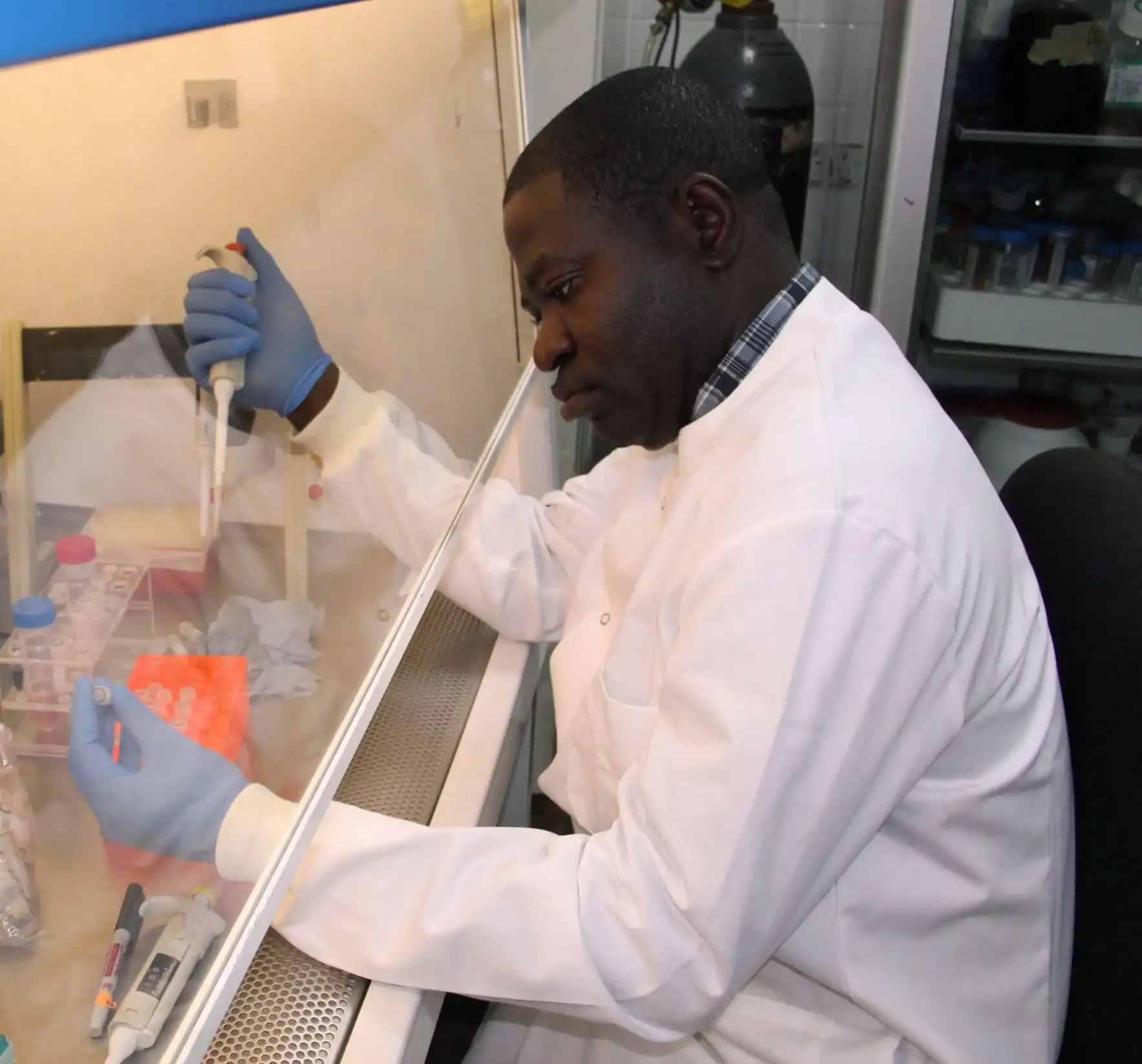Host organisation: London School of Hygiene & Tropical Medicine (LSHTM), UK
Project title: Developing Biomarker(s) of Infectious Anopheles Bite with a Potential for Blocking Malaria Transmission
Dr Kingsley Badu obtained his PhD in Theoretical and Applied Biology from the Kwame Nkrumah University of Science and Technology in Kumasi, Ghana in 2014. Prior to this, he worked on various studies of the transmission of malaria, onchocerciasis and lymphatic filariasis at the Kumasi Centre for Collaborative Research in Tropical Medicine.
As a PhD student (with a NIH studentship through Guiyun Yan), he worked as a visiting scientist at the Kenya Medical Research Institute in Kisumu, where he studied the molecular and immuno-epidemiology of malaria in the western Kenyan Highlands. He is currently developing alternative approaches for measuring malaria transmission at Noguchi Memorial Institute (University of Ghana) while teaching at the Garden City University College.
AREF Fellowship research project:
Dr Badu’s fellowship work focused on discovering specific molecules (biomarkers) detectable in humans that, when present, indicate the person has recently been bitten by a mosquito carrying malaria parasites. Understanding who is receiving infectious bites will enable malaria control programmes to target their activities on the most vulnerable populations. In this way limited resources can be focused where they are more likely to have a greater impact.
When the malaria parasite is in the mosquito, very specific parts of the parasite (‘epitopes’) interact with the mosquito mid-gut and salivary gland. When an infected mosquito bites people, the people produce antibodies to the malaria parasite Plasmodium falciparum, including antibodies against the malaria epitopes that interact with the mosquito.
We already know that the host immune response to these epitopes correlates with measures of exposure to infectious mosquito bites. The accruing data suggest we can develop a promising infectious bite biomarker, which I aim to characterise during this fellowship.
The next stage in his research would be to show we could immunise people with a recombinant peptide molecule, mimicking the parasite epitope that interacts within the mosquito. If immunisation causes people to make antibodies against the epitope, that that could interfere with the parasite in the mosquito and so reduce malaria infectivity to mosquitoes. That in turn might prevent onward transmission of the malaria to other people.
The AREF Fellowship paired Dr Badu to work with Prof Chris Drakeley and his team at the London School of Hygiene and Tropical Medicine. Dr Badu’s primary goals from the fellowship were to acquire hands-on experience in multiplex antibody screening platforms and statistical modelling, enhance my understanding of molecular cross-talk between host, parasite and vector, characterize an infectious bite marker within a specific pre-erythrocytic P. falciparum protein, and obtain preliminary data in order to develop a competitive proposal for a biomarker validation project.



